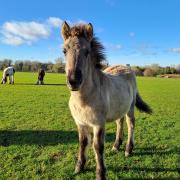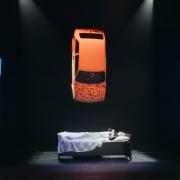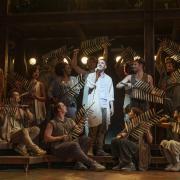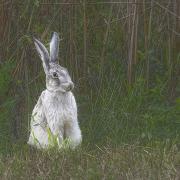As acclaimed play The Curious Incident of the Dog in the Night-Time arrives in Norwich, Rachel Buller discovers how those with autism are being helped to access the arts.
Telling the story of an autistic boy struggling to make sense of the wider world, The Curious Incident of the Dog in the Night-Time gives a fascinating glimpse into the mind of those living with autism.
This month, the acclaimed stage version of Mark Haddon’s book comes to the Norwich Theatre Royal, raising awareness of the condition which affects hundreds of people in Norfolk alone. The theatre is one of several places in the county which now offers special performances of some of its key shows to ensure they can be enjoyed by those with autism and their families.
Anne Ebbage, Norfolk autism development advisor for Autism Anglia, says it is essential to both raise understanding of the condition and also improve access to the arts for those diagnosed.
“People with autism can have issues making sense of their sensory intake, what they are seeing, hearing and even smelling and touching. It can be very hard to process and deal with these new experiences and to know how to react.
“But often, their behaviours are really a way for them to communicate. It is their way of saying ‘I don’t know what is going on; I don’t understand and there is too much going on for me’.”
Anne has been closely involved in developing the theatre’s “relaxed performances” - another of which is planned for this year’s pantomime - where there is low lighting and the audience can move in and out of the auditorium. Prior to the show, ticket holders are also sent an information pack about what to expect.
“It doesn’t give away the plot but prepares them, warning them about when there might be a loud noise or flashing lights. A video on the website gives a visual guide to what it is like going to the theatre, where you sit and what the auditorium and stage looks like,” she says. “Before the relaxed performances, staff and volunteers are also given a briefing about what to possibly expect and they are absolutely brilliant at putting parents and carers at ease. We want these shows to be a gateway to enabling people to move on to other performances in the future.”
Anne says that people are increasingly more aware about autism and that books like The Curious Incident create debate and increase understanding.
“It can be very isolating, because families can feel uncomfortable taking their children out because their behaviour can be unpredictable, which means siblings often miss out. At the moment, we are driving an autism alliance project to create a charter to make communities more autism-friendly, and the Theatre Royal, Bewilderwood, local cinemas and some cafes are already on board which is fantastic.”
www.autism-anglia.org.uk



























